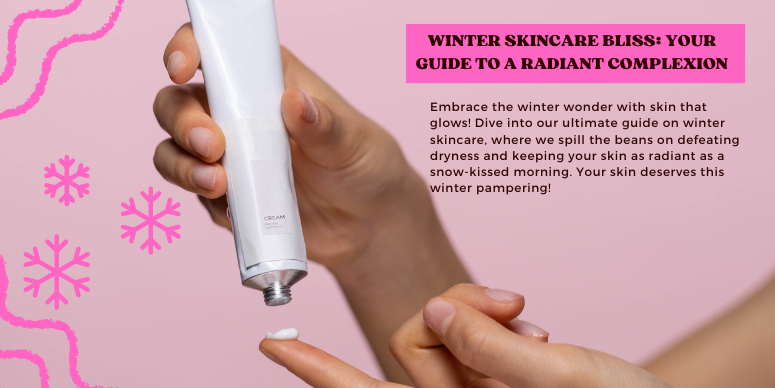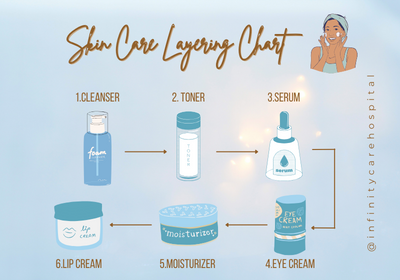Maintaining a winter skincare routine is crucial, especially in our busy lifestyles. Winter can be tough on your skin. The cold weather and dry air can cause some problems, so it’s important to take care of your skin during this season. Let’s break it down.
How Winter Affects Your Skin:
When winter comes, your skin goes through some changes because it gets colder and less humid. The most obvious change is that your skin becomes drier. The cold air doesn’t have enough moisture, which can make your skin feel tight, flaky, and dehydrated. Winter elements, like the wind and cold, can also take away your skin’s natural oils, making it more prone to irritation and redness.
To tackle these challenges, it’s essential to understand how winter affects your skin. Recognizing signs of dryness and possible irritation is the first step in creating a strong winter skincare routine.
 Choosing the Right Winter Moisturizer:
Choosing the Right Winter Moisturizer:
Not all moisturizers are the same, especially in winter. Picking the right winter moisturizer is crucial to keep your skin hydrated and protected.
Know Your Skin Type:
Before you dive into moisturizer options, think about your skin type. Whether it’s oily, dry, a mix, or normal, different skin types need different amounts of moisture. Choosing a moisturizer based on your skin type ensures it works well for you.
Hydration Heroes:
Winter requires intense hydration. Look for moisturizers with ingredients like hyaluronic acid, glycerin, and shea butter. These powerful hydrators help your skin lock in moisture, preventing dryness and keeping it supple in the face of winter challenges.
Heavier Texture for Winter:
In winter, go for a richer, more nourishing moisturizer. Creams or ointments create a protective layer, preventing moisture loss in the cold, dry air. This extra richness gives your skin the deep hydration it craves during winter.
Cold Weather Skincare Tips:
Dealing with winter’s effects on your skin goes beyond using the right moisturizer. Let’s explore some simple and effective cold weather skincare tips to keep your complexion glowing, even on the coldest days.
DIY Skincare Magic:
Your kitchen might have the solution to winter skin issues. Try DIY skincare with ingredients like honey, avocado, and yogurt. These natural wonders not only nourish your skin but also add a touch of luxury to your winter skincare routine.
Nightly Treatments:
Boost your skin while you sleep with overnight treatments. From hydrating masks to soothing serums, these treatments let your skin rejuvenate overnight, so you wake up with refreshed and revitalized skin.
Nourishing Your Skin in Winter:
Taking care of your skin in winter isn’t just about external care; it’s also about nourishing your skin from the inside out.
Eating for Glowing Skin:
Include foods rich in antioxidants and omega-3 fatty acids in your winter diet. Berries, fatty fish, and nuts contribute to a healthy and radiant complexion.
Supplements for Support:
Consider adding supplements that support skin health during winter. Vitamin D, omega-3, and collagen supplements can provide extra nourishment your skin needs to tackle seasonal challenges.
In conclusion, mastering winter skincare involves understanding how winter affects your skin, choosing the right moisturizer, trying effective remedies, and nourishing your skin from the inside. Armed with these insights, you can confidently navigate the winter months, ensuring your skin stays radiant and healthy despite the chilly conditions.
FAQs:
Q: Can I use the same moisturizer in winter as in summer?
A: No, winter demands richer, more hydrating moisturizers to combat dryness effectively.
Q: How often should I moisturize during winter?
A: Aim to moisturize at least twice a day, especially after cleansing, to lock in moisture.
Q: Are there specific ingredients to look for in winter skincare products?
A: Yes, ingredients like hyaluronic acid, shea butter, and glycerin provide excellent winter hydration.
Q: Can I skip sunscreen in winter?
A: No, UV rays are still present in winter, so sunscreen is crucial to protect your skin from damage.


 Choosing the Right Winter Moisturizer:
Choosing the Right Winter Moisturizer:

